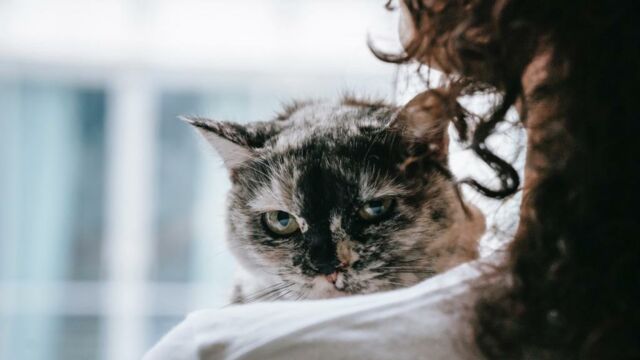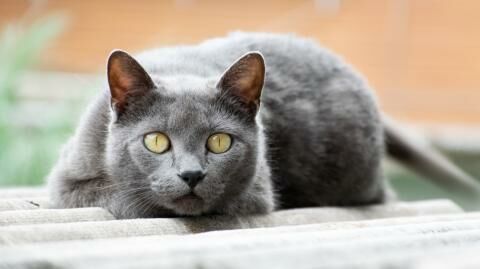Cats never cease to surprise us. But some of their antics are weirder than others. We can only wonder what on earth our pet felines think when they take to using their comb-like tongues on human hair, licking, chewing, and even eating it. Let’s decipher their bizarre behaviour and find out the real reason why our enigmatic pets can’t leave our manes alone.
Discover our latest podcast
Your cat shows affection
Grooming is a sign of affection in the cat world, and it's considered to be a form of bonding. The technical term for this behaviour is allogrooming, and it typically centres around the head and neck of a cat. But it would make sense for your cat to attempt to allogroom your head, as well. According to Amelia Wieber, Certified Cat Behaviour Consultant, if your cat is licking your hair, it may be showing affection.
Your cat wants to play

Have you noticed how small children are often attracted to hair and like playing with it? The furry kids are just the same. Your hair is like tassels featured on cat toys, making your head a target for a playful attack. Watch out!
Your cat craves attention
If your cat can't leave your mane alone at night or near mealtimes, it may indicate attention-seeking. Unless your enjoy the whole hair-chewing business, don’t fall into the trap. Once your fluff-ball sees that it works, that positive feedback loop is reinforced and they'll be more likely to do it again.

Your cat is stressed
Grooming - themselves or others - is your cat’s way to reduce stress and soothe their worries. Amelia Wieber says that if your cat has bald patches or seems to be licking themselves, you, the furniture, or other items constantly, it's time to get professional help to rule out dermatitis and mental health issues.
When to go to the vet
While your cat’s chewing and licking of your hair are rather harmless, a feline who purposefully and repeatedly eats human locks off the floor, your head, or off a hairbrush may have a condition called pica.
The UC Davis School of Veterinary Medicine defines pica as ‘the persistent chewing and consumption of non-nutritional substances that provide no physical benefit to the animal’ and lists underlying medical problems, nutritional deficiencies, and behaviour issues (e.g. boredom, anxiety) as potential causes.
Pica can become a danger to your cat's health because it can cause blockages in their intestinal tract. If you think your pet has this condition, it's important to schedule them for a veterinary evaluation.
Sources used:
- Daily Paws: ‘Why Does My Cat Eat My Hair?’
- Paw Tracks: ‘Why does your cat chew your hair? The reason might surprise you’
- UC Davis School of Veterinary Medicine: 'Unusual Eating Habits in Dogs and Cats'
Read more:
⋙ This is the real reason why your cat buries its poop like treasure















